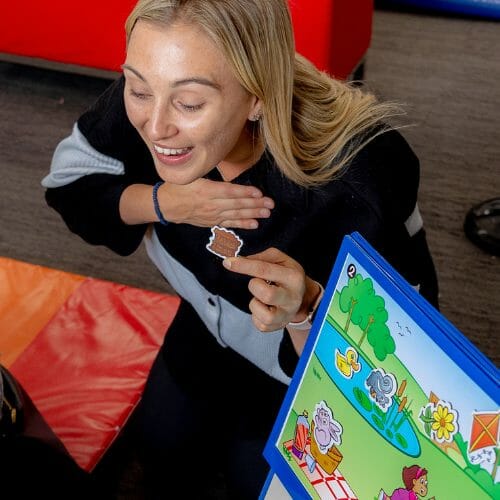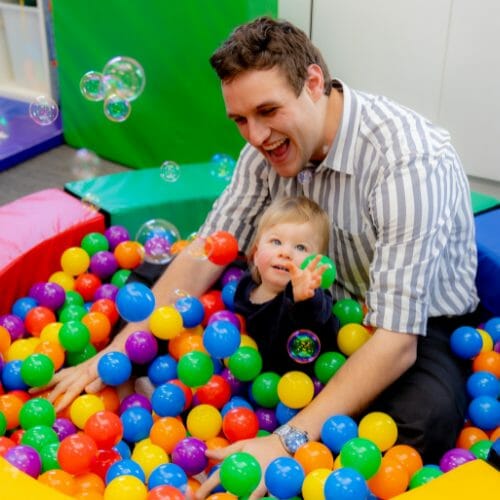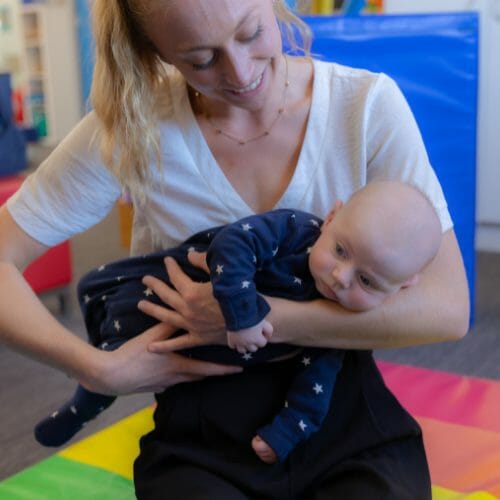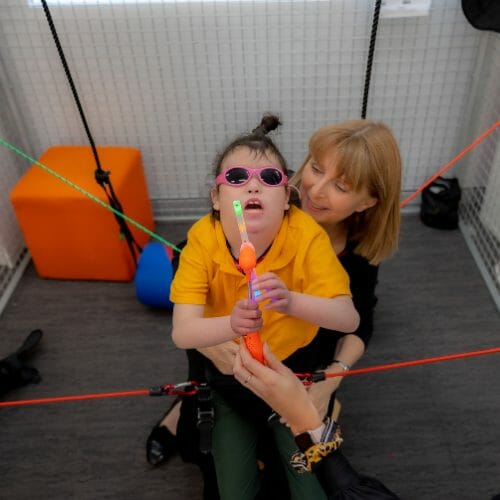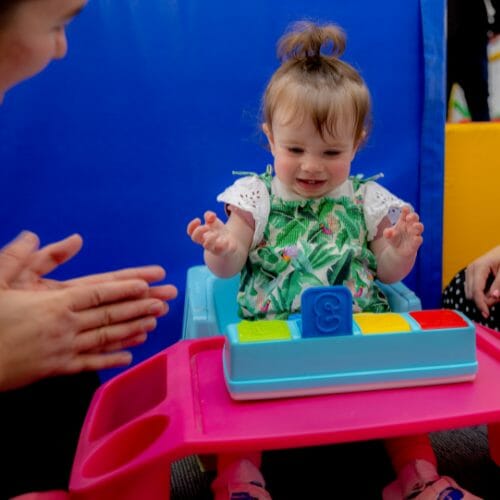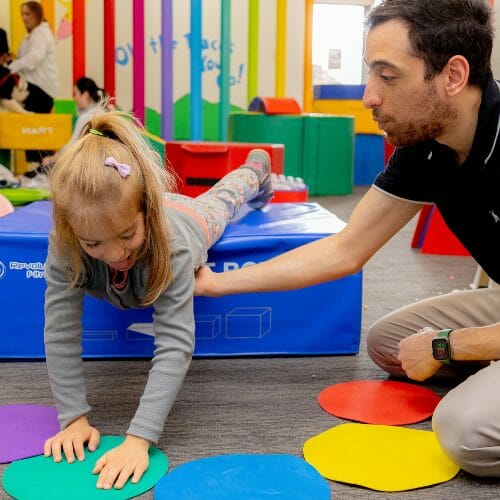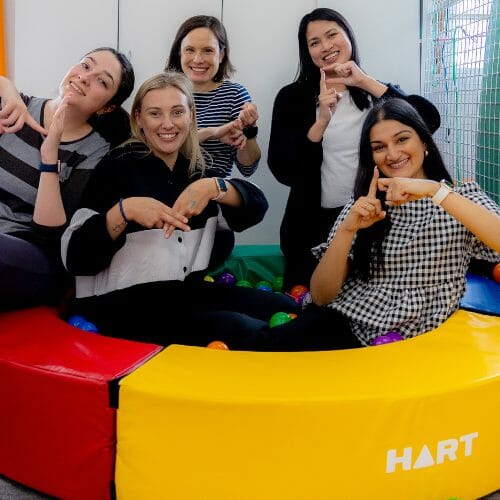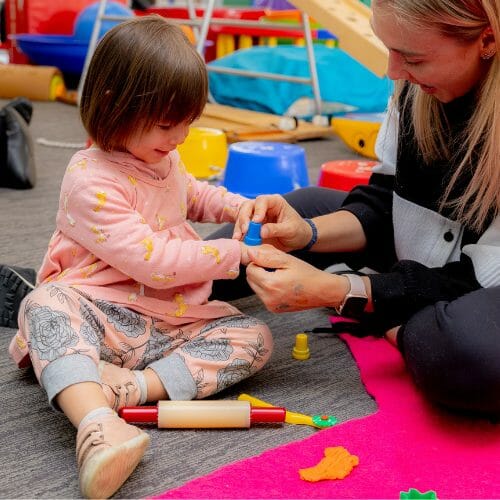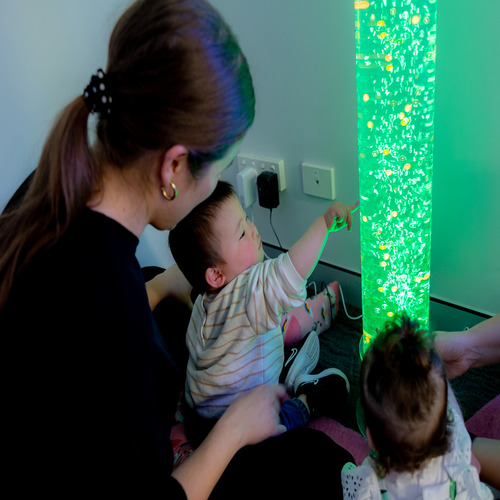Augmentative and Alternative Communication
Augmentative and Alternative Communication (AAC) includes forms of communication other than oral speech that are used to express thoughts, needs, wants, and ideas. We all use AAC when we make facial expressions or gestures, use symbols or pictures, or write.
AAC can be categorised as either high-tech (e.g. electronic speech generating devices) or low-tech (e.g. paper-based). There are also aided and unaided systems such as:
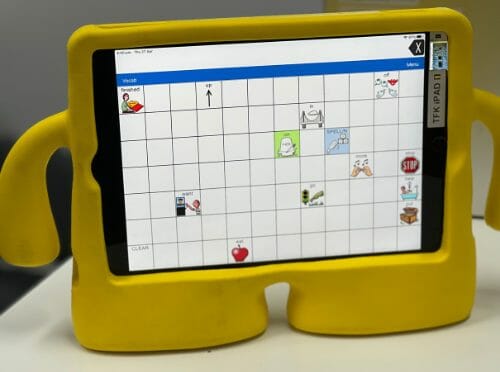
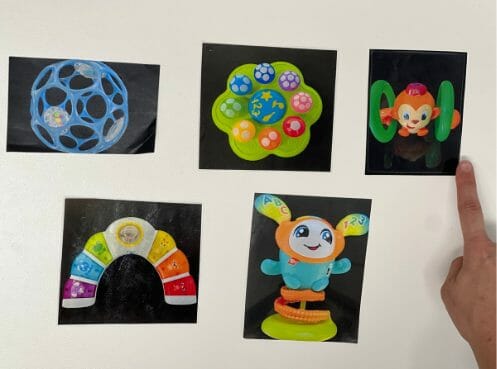
- iPad apps such as Proloquo2go or Touch Chat
- Picture Exchange Communication System (PECS)
- Switches that play pre-recorded messages
- Visual Schedules
- Communication systems with eye gaze
- Real objects
- Typing
- Key word sign or AUSLAN
- Facial Expressions
- Gestures and body language
- Making requests
- Asking for help
- Saying ‘hello’ and ‘goodbye’
- Commenting on something interesting
- Asking and answering questions
- Telling stories
- Talking about what will happen during the day
What can we do:
Our Speech Pathologists are experienced at using a variety of augmentative and alternate communication devices and methods. Using augmentative or alternative communication can often be an exciting time for children/adolescents and their families as it can decrease frustration resulting in difficult or no speech and improve the child/adolescent’s sense of independence and self-worth, opening up pathways for self-expression, socialisation, learning, and function.
Our Speech Pathologist may be able to assist you with the implementation of an AAC program within your home, community, preschool/school, and other therapy sessions.
- Any condition approved for NDIS funding
- Early Childhood Early Intervention (ECEI)
- Neurological conditions
- Acquired Brain Injuries
- Cerebral Palsy and Movement Disorders
- Genetic conditions
- Anxiety Disorders
- ASD and ADHD
- Sensory Processing Disorder
- Language delays or difficulties
Our Services
Intensive Therapy Programs
Intensive Therapy Programs
Physiotherapy
Physiotherapy
Occupational Therapy
Occupational Therapy
Speech Language Pathology
Speech Language Pathology
Exercise Physiology
Exercise Physiology
DMI Therapy
DMI Therapy
Suiting
Suiting
Telehealth
Telehealth
New to Therapies For Kids? Start your journey
Talk to our team now
Request a call back
We are here to help
